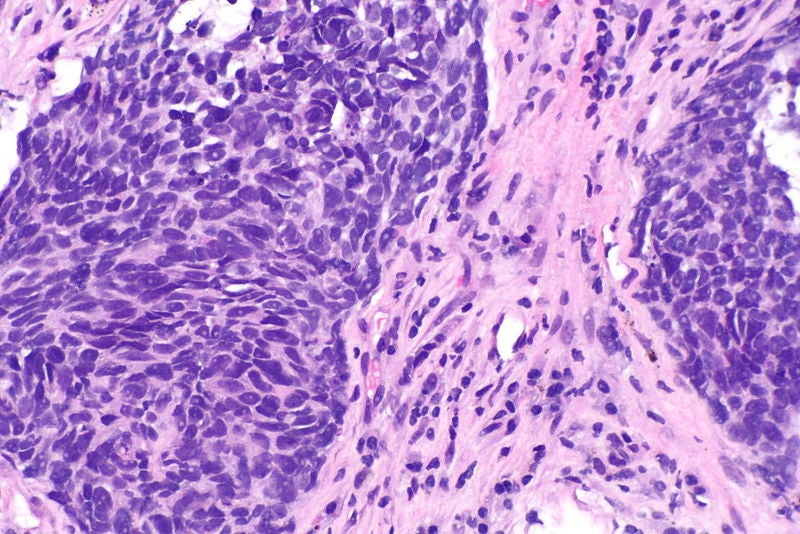
The European Commission (EC) has approved Merck’s anti-PD-1 therapy Keytruda as a first-line treatment for adults with metastatic squamous non-small cell lung cancer (NSCLC).
The indication covers the use of a 200mg dose of Keytruda, in combination with chemotherapy – carboplatin and either paclitaxel or nab-paclitaxel, every three weeks until disease progression or unacceptable toxicity.

Discover B2B Marketing That Performs
Combine business intelligence and editorial excellence to reach engaged professionals across 36 leading media platforms.
EC approval is based on findings from the Phase III KEYNOTE-407 clinical trial that compared Keytruda plus carboplatin-paclitaxel or nab-paclitaxel with carboplatin-paclitaxel or nab-paclitaxel alone in a total of 559 participants.
The Keytruda combination with chemotherapy was observed to significantly improve overall survival (OS) in adults with metastatic squamous NSCLC, irrespective of their PD-L1 tumour expression status.
The combination decreased the risk of death by 36% when compared to chemotherapy alone.
Merck Research Laboratories chief medical officer Roy Baynes said: “Keytruda provides a foundation for the treatment of lung cancer in Europe, and this approval expands our first-line combination indications to include adults with metastatic squamous non-small cell lung cancer.

US Tariffs are shifting - will you react or anticipate?
Don’t let policy changes catch you off guard. Stay proactive with real-time data and expert analysis.
By GlobalData“This is a meaningful treatment advance as an anti-PD-1 combination therapy is now approved in Europe for this type of non-small cell lung cancer. With this approval, more patients with non-small cell lung cancer may have the opportunity to benefit from combination therapy with Keytruda.”
In Europe, Keytruda is also approved for the first-line treatment with pemetrexed and platinum chemotherapy in adults having metastatic non-squamous NSCLC and no EGFR or ALK-positive mutations.
It can also be used as monotherapy for metastatic squamous or non-squamous NSCLC in adults having tumours with high PD-L1, without EGFR or ALK-positive tumour mutations.
The drug is also indicated for treating adults with locally advanced or metastatic NSCLC and PD-L1 expressing tumours, after at least one previous chemotherapy regimen.




